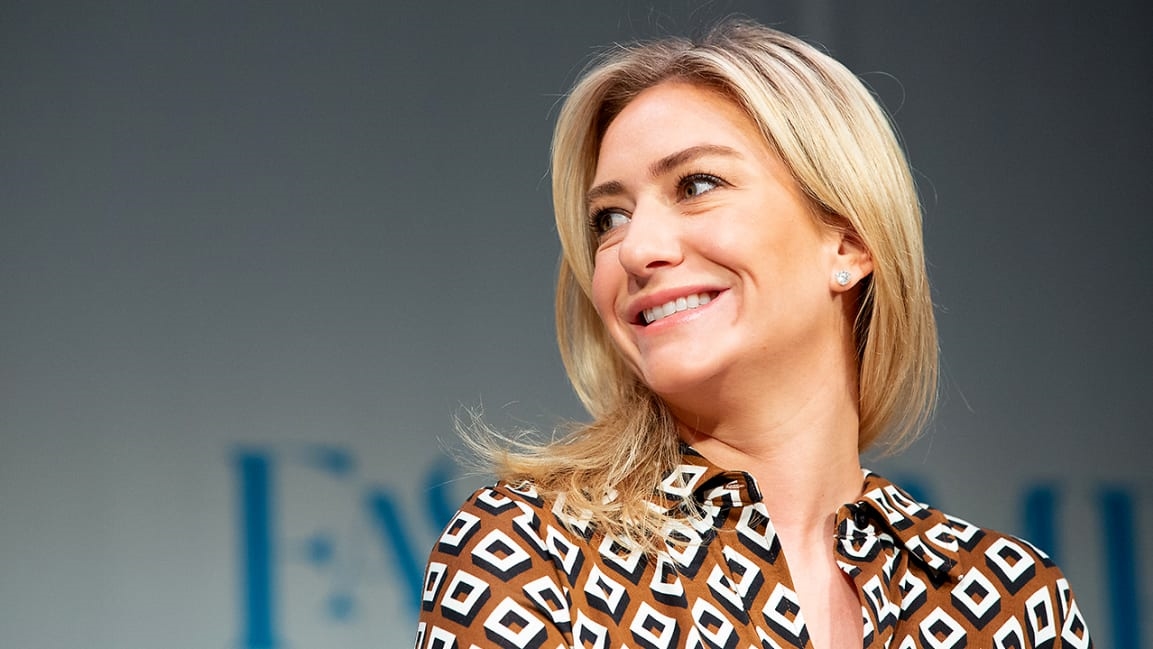Pregnancy is making Bumble CEO Whitney Wolfe Herd rethink parental work policies
Whitney Wolfe Herd, the founder and CEO of Bumble, has always put a lot of thought into work-life balance both for herself and at her online dating company. But now she’s going through what she calls a major “rethink” of that thought process and how things like parental leave affect the 130 employees at Bumble, a female-centric app that only allows women to make the first move. That’s because the 29-year-old executive is expecting her first child—a boy, due in November—putting her in the unique position of being not just a female, millennial tech CEO, but a millennial tech CEO who’s about to be a mother.
“I definitely have always thought about parental leave and parental well-being, just because I have always worked with somebody who’s been a parent, whether that be a father or a mother,” Herd said on Monday, soon after she announced her pregnancy. “I’ve always wanted parents to prioritize their children’s well-being alongside their job. So I never wanted them to feel like they have to choose one or the other. I don’t think that’s a fair position to be in.”
Indeed, in 2014 when Herd founded Bumble, after (acrimoniously) exiting Tinder, which she cofounded, health and wellness was baked into the company’s DNA. Employees at the mostly female-run company are encouraged to work as flexibly as they need to; they’re given stipends for things like massages and gym memberships; and on Friday’s, blow-out and mani-pedi sessions take place in the company’s Austin, Tex. “hive,” or headquarters.
Perks for parents are just as generous. Employees expecting children are given a four-month, paid leave, and new parents receive a $1,000 bonus to offset childcare costs. Parental leave can be banked, so that if a parent wants to return to work after three months, they can spread out the remaining month’s time over the course of the following year or more. Bumble also provides reimbursements for breast milk home delivery service (via Milk Stork) for breastfeeding mothers who are traveling, and covers any costs incurred by Maven, an app that provides video calls, counseling, nutrition services, and other services for parents and parents-to-be. Bumble’s headquarters also has a mothers’ room stocked with snacks and tea.
Now Herd says she wants to do more.
“Now that I myself am pregnant, I understand, just from the basic demands of needing to go to a doctor’s appointment on a certain week, that I can’t imagine the stress that someone might feel who can’t make their own hours,” says Herd. “So many CEOs think about parenting within the context of maternity-paternity leave, but that’s kind of where it stops. But there are nine months of pre-paternity or pre-maternity. Then there’s everything that comes after. So I’m really starting to think about the white space on the beforehand and after-hand of that actual leave. And making sure that once a parent does come back to work, how do we do that in a flexible way?”
She says she’s already thinking about the way that Bumble’s new headquarters—the company is expanding into a new building in Austin next May—can accommodate new parents. For instance, she’s planning on building a childcare space where employees can reserve to have a caretaker watch their child while they work.
“If, say, the child is on spring break or school hasn’t started yet, and someone is on deadline,” Herd says, the parent could bring them to the space, where a vetted childcare provider would watch the child in a setting that is “educational and built on foundational learning functions.”
Bumble will also begin offering a parental stipend that can be put toward things like childcare, tutoring, or “whatever you need to do to help you balance your career.”
As for how pregnancy is personally affecting Herd, a driven leader who starts her days well before 5 a.m. and is hands-on in almost all aspects of the company, she says, “I didn’t realize how stressed I was until I got pregnant. I think when you’re not looking after another life, you feel like it’s okay to run on a few hours of sleep, or say, ‘No, I’ll be fine if my blood pressure is a little high.’ Or, ‘That’s okay if I don’t feel good; I’ll work through it.’ Being pregnant, I feel an entirely new responsibility, not just for the future of my child, but for my own self.
“Both doctors and my husband [have said], ‘You literally have to slow down.’ This baby has been the first time in five years at Bumble that I’ve been forced to not push it.”
(32)



